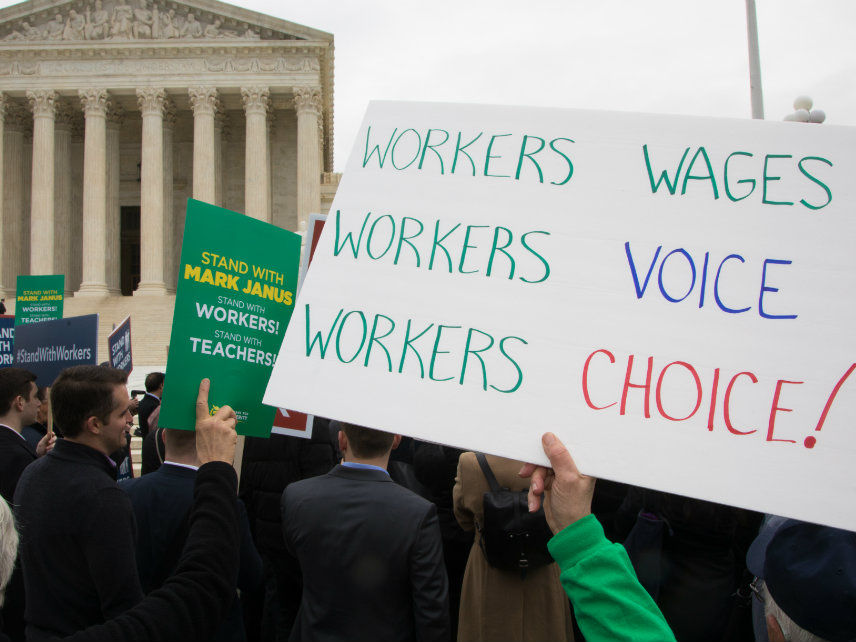After the Supreme Court Said Unions Can't Force Non-Members to Pay Dues, Almost All of Them Stopped
- OurStudio

- Apr 9, 2019
- 2 min read

Jeff Malet Photography/Newscom
Given the choice of no longer paying to support unions they didn't want to join in the first place, lots of public sector workers took it.
Two of the largest public sector unions in the country lost more than 210,000 so-called "agency fee members" in the wake of last year's Supreme Court ruling that said unions could no longer force non-members to pay partial dues. That case, Janus v. American Federation of State, County and Municipal Employees, effectively freed public workers from having to make "fair share" payments—usually totaling about 70 to 80 percent of full union dues—in lieu of joining a union as a full-fledged member.
Now, annual reports filed with the federal Department of Labor show that the American Federation of State, County and Municipal Employees (AFSCME) lost 98 percent of it's agency fee-paying members during the past year. Another large public sector union, the Service Employees International Union (SEIU), lost 94 percent of their agency fee-paying members.
Even though unions were preparing for a mass exodus in the wake of the Janus ruling, the numbers are staggering. In 2017, AFSCME reported having 112,233 agency fee payers (compared to 1.3 million dues-paying members), but that figure dropped to just 2,215 in the union's 2018 report. The SEIU reported having 104,501 agency fee-payers in 2017 (compared to 1,919,358 dues-paying members), but just 5,812 of them at the end of 2018.
Not being able to rob the paychecks of non-members will likely dent the powerful public sector unions' bottom lines. Compared to 2017, AFSCME reported a $4.2 million drop in revenue from fees and dues in 2018. The SEIU reported an $8.6 million gain in revenue during 2018, according to its Department of Labor filing, but Bloomberg Law reports that "accounting lags" resulted in some 2017 revenues being reported in 2018, so those numbers may be unreliable.
Still, the good news for those unions is that overall membership levels remained roughly the same—which means most full-fledged members decided to stay with their unions even after Janus opened the door for them to leave, while non-members seem to have almost unanimously wanted to get out.
And that's exactly why the Janus case was so important for worker freedom. Individuals who choose to support a union can continue doing that, and those that do not want to fund union activities are no longer forced to do so. Far from being an outright attack on the right of workers to unionize—which is exactly what unions claimed the Janus case was—the Supreme Court's decision allows all workers to do as they please.




Comments